Mistakes In Camping. Why I Ended Up Purchasing Two Pickup Trucks In 30 Days.
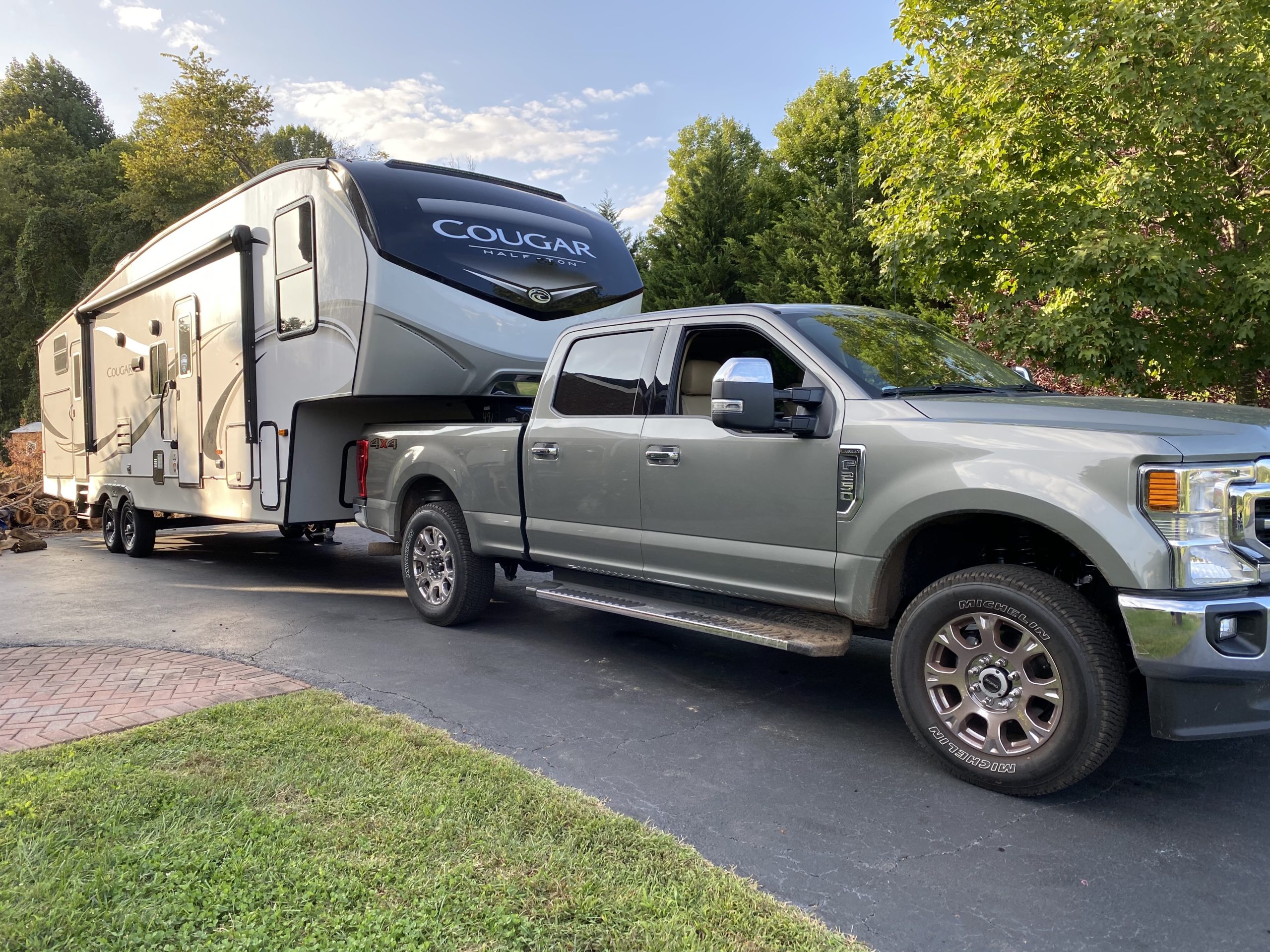
It’s the best laid plans, they say, right? Like most of you, we’re jonesing to get back out on the road to travel. My wife and I knew that any plan to get back to travel would have to involve a few key points. First, it would have to check the boxes for our daughter’s anxiety. She’s dealt with anxiety since she was quite young and has developed some pretty amazing tools to keep it in check. But, germs are absolutely one of her major hot buttons. As she said when the COVID-19 pandemic started to pick up steam, “I’ve been training my whole life for this.”
We also knew that any travel would need to avoid airplanes for quite a while. While we view the risk as low getting on an airplane, we just aren’t willing to take that risk to travel. Lastly, we knew we had to make it fun for our youngest child. Our son still loves theme parks and “fun” stuff, with the definition of fun changing as often as the wind changes direction. We had our work cut out for us.
Our first trip was in a motorhome, something we’d never done before. Our goal was to try to experience some level of “normal” with a trip to Hersheypark prior to their public opening earlier this summer. All in all, it was 2020’s version of success. Our daughter spent a few minutes talking about how she found ways to manage her anxiety in an incredibly stressful situation.
With that trip under our belt, we decided to try renting another RV. Due to some of the failures we had on our first camping trip, we wanted to find a trailer for our next rental. That lead to all kinds of questions about what sort of truck we’d need to tow it, and it lead me to start drawing up a beginner’s guide to renting an RV. Our end goal was to figure out if our family could enjoy the RV life enough to actually buy one (and a pickup truck).
Our voyage would not go as planned. Strap in for a bit of a story.
Purchasing A Pickup Truck
Fast forward to the point where our family decided they wanted to take the camping plunge. I do plan to go through all the methods behind our madness of jumping into the camping world. It was clear to us that the best fit for our family was to purchase a pickup truck and a trailer as opposed to buying a motorhome. For starters, motorhomes can get pricey quickly. And, for us the biggest downside was that once you were parked at a campsite it was hard to get settled knowing that the only vehicle you had to go anywhere was also your house.
There are two primary types of RVs to consider if your plan is to pull one with a pickup truck, travel trailers and fifth wheels. Travel trailers come in various shapes and sizes and tend to be the smaller of the two varieties. These tend to be trailers that you tow with a typical bumper pull hitch. You’d recognize these as a metal ball that the hitch sits down onto. Now, there are weight distribution hitches and plenty of other gadgets to help with your trailer, but those are details for another day as well.
Not all pickup trucks are created equally, far from it. We planned to purchase a 1/2 ton pickup truck to pull the kind of travel trailers our family would comfortably fit in. These aren’t the smallest pickup trucks out there, but they’re also far from the biggest. There are a number of factors to consider when buying the right pickup truck and trailer, mostly revolving around safety.
One of the most important (and often overlooked) numbers is the payload capacity of your truck. This is different than towing capacity. What I quickly found in my research of pickup trucks is that you’re much more likely to run out of payload capacity before you run out of towing capacity. Without getting overly nerdy, payload capacity is all the “stuff” you can carry. This includes the people in the truck, anything you carry in the bed of the pickup truck as well as the “hitch weight” (also referred to as tongue weight) of any trailer. The hitch weight isn’t the total weight of the trailer. Actually, it’s not even close.
The number I saw widely referenced by pickup truck “experts” online was that you should figure 10% of the total trailer weight is your hitch weight. That’s a number that I probably should have verified before buying a pickup truck because it’s very, very wrong.
Finding the payload capacity of a truck can be a complicated endeavor. Dodge actually has a link where you can look up the towing and payload capacity of any Dodge truck as long as you have the VIN. That’s a super helpful feature. It also quickly illustrated that while the Dodge trucks look great inside and out, they really lack the sort of towing and payload capacity needed to pull a trailer. Ford has a combination water torture/Pythagorean Theorum/blueprint to the space shuttle approach to calculating towing capacity.
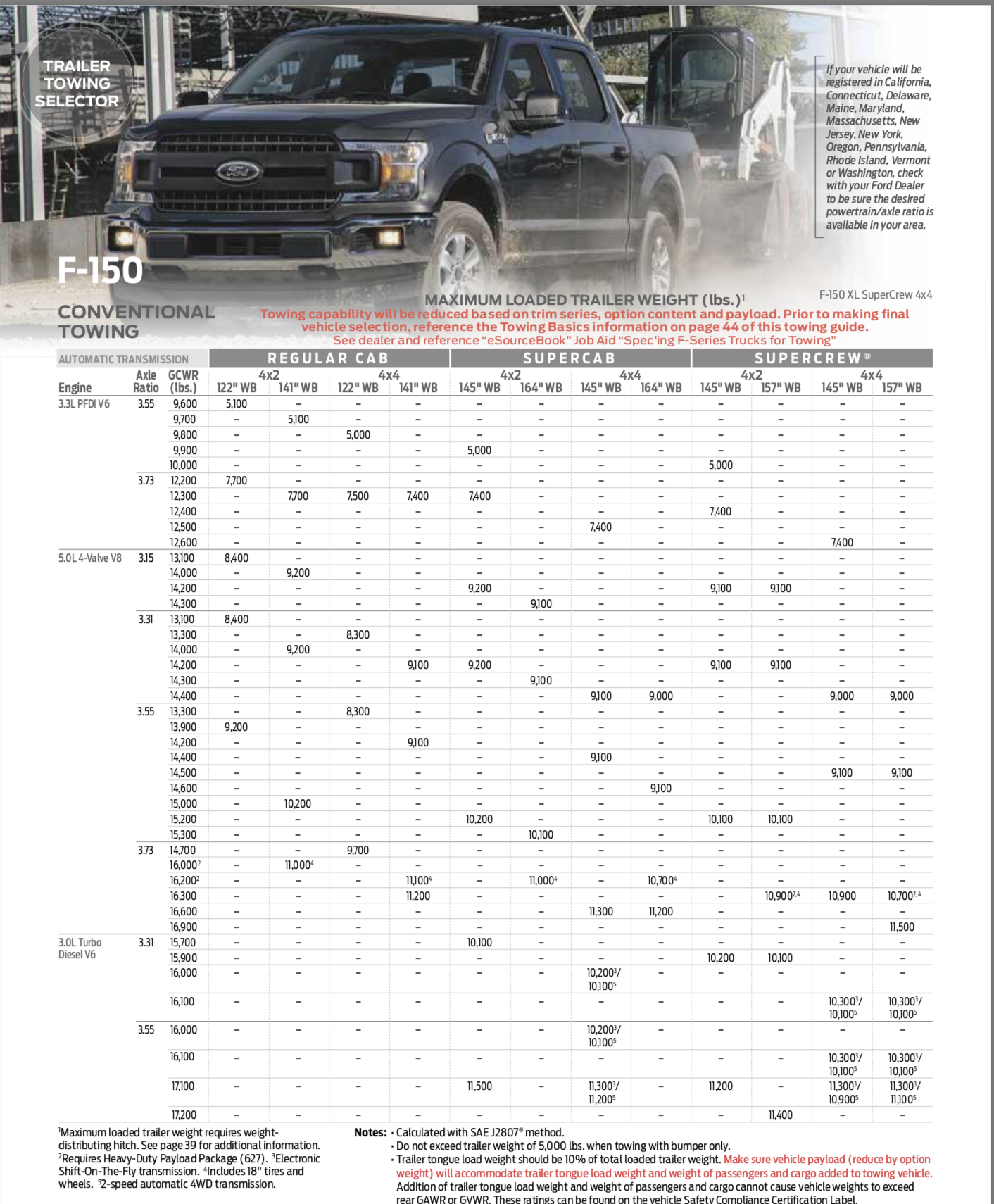
I can’t even begin to tell you how many hours I spent researching trucks. When it became clear a Ford F-150 was the best shot we had of finding a truck with plenty of payload capacity, I started calling dealerships to ask what the payload capacity was of certain trucks. You see, Ford doesn’t have one of those handy websites to check payload. In fact, it’s not even on the window sticker or other online details for the truck. The only place online you can find it is on a proprietary app that sales managers have access to (which only operates on Android devices). Only one dealership (out of about 25 that I contacted) had any idea this app existed. The rest of the process was me calling sales managers and begging them to have someone check random vehicles on their lot for the payload capacity, displayed on a yellow sticker on the door jam.
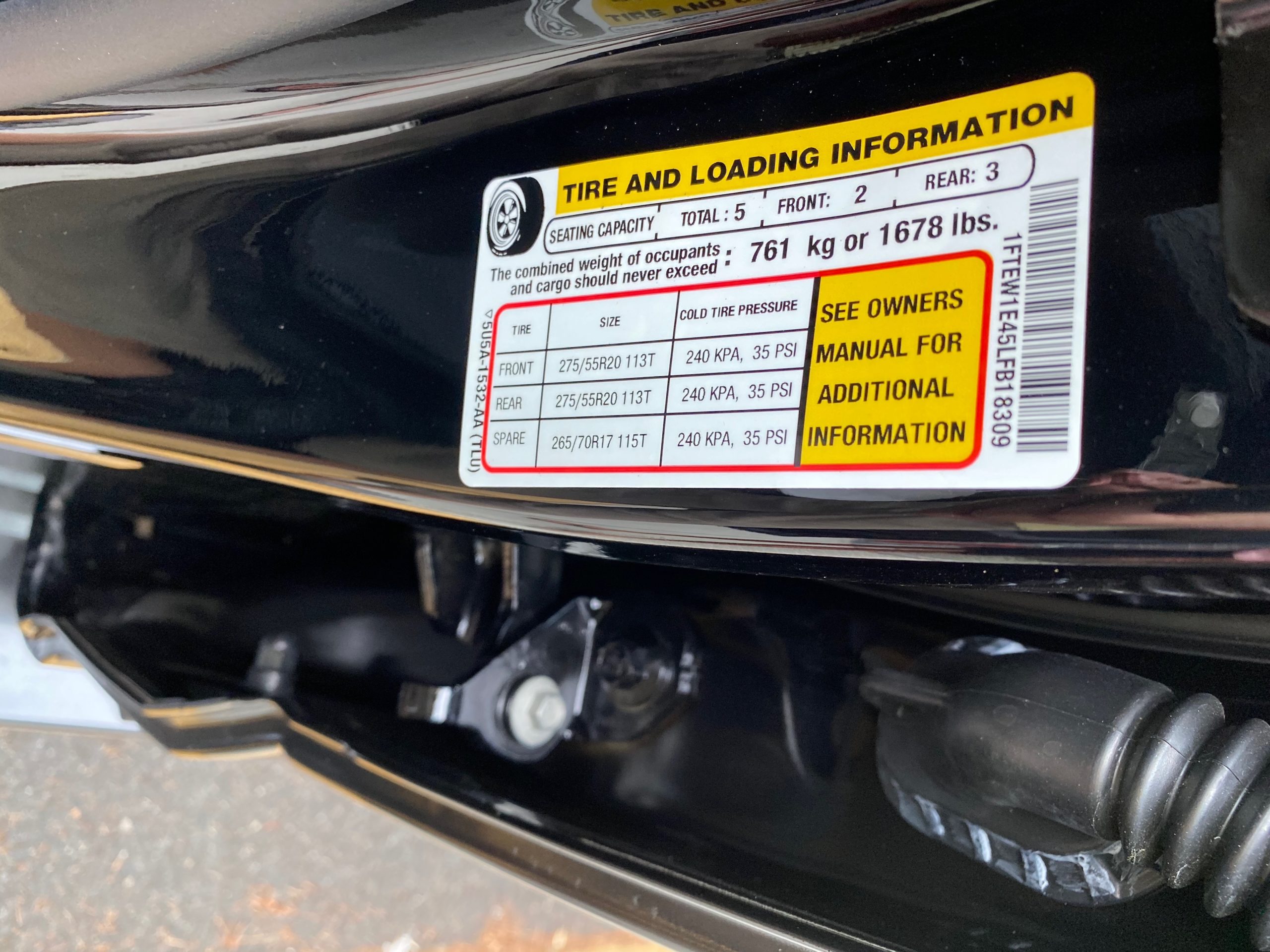
The vast majority of F-150 trucks in our configuration (with a Supercrew cab, 4×4 with a shorter truck bed) already chewed up payload because we opted for a 4-door truck versus a two-door. We figured for long trips the kids would want a real backseat. Then, when you add on options we had no desire for, like a chrome package and running boards you keep driving that payload number down. We found options like this standard on many, many trucks we looked at.
After looking at literally hundreds of trucks I finally found one that had a really high payload number in the configuration we needed. I was all set to sign the paperwork with the dealer when I realized the truck didn’t have any running boards. With smaller kids, getting up into a pickup truck can be a bit of a bear without running boards or a step. Were we back to square one? I think the sales manager was ready to kick me out of the dealership at this point, but he lead me to a back room where there were boxes and parts stacked everywhere. He showed me a pile of very basic, black running boards. The sales manager explained these were the cheap stock running boards that people buying new trucks had the dealership take off and throw away so they could install big, chrome ones that they liked the looks of better. He told me I could have a set for free if I’d just buy the truck. A scale appeared out of nowhere and we weighed the basic running boards. 20 pounds apiece and we were in business!
The Plan Blows Up When We Try To Buy A Trailer
Brand new truck in hand, we went back to the rental company that we had used throughout the summer and found a used trailer that we really liked. It was a bit bigger, with the added benefit of a bonus half bathroom to go with a full bathroom. If you’ve listened to me talk about family vacations in the past, you’ve probably heard me talk about the value of a hotel suite or connecting rooms. We don’t live in one bedroom and share one bathroom at home as a family of four. So, when we don’t have to do that on the road, we prefer more space. The same held true looking for a trailer.
I pulled our brand new pickup truck up to the rental place and the staff there helped me hook up the trailer we were considering for our purchase. Our plan was to take it for a long weekend and make sure we liked it, then close the deal when we got back. The hitch weight on the trailer was listed at roughly 900 lbs. which would leave us a few hundred pounds of extra payload capacity to make sure we were operating safely. How much extra? Well, we’d need a set of truck scales for that. This was another learning experience. After learning from some smart folks in Facebook groups, I set out for a truck scale with the family loaded in the pickup truck and the trailer in tow. This was our ideal setup that we would roll out with for camping trips, a perfect test for the scales.
Per the instructions I had, I did my three different passes over the truck scale and grabbed my scale tickets. Initially everything looked good. As we drove and I tried to crunch numbers in my head I wasn’t sure. An hour later we arrived at our campsite for the weekend and I sat down to do the math. As smoke poured out of the sides of my computer, I plugged in all the numbers to a very detailed (and very useful) spreadsheet I found on Facebook. I checked the calculations. And, I rechecked them. Then, I just stared at the numbers. I posted them to Facebook, surely someone would find my math mistake. Alas, no mistake. The hitch weight of the trailer we wanted to buy wasn’t 900 lbs. It wasn’t even close. It weighed in around 1500 lbs. or WAY over the limit our truck could tow safely.
Our return trip home was thankfully short. We drained all the water out of the tanks in the trailer, dumped all the trash we could and put as much weight at the back of the trailer as possible. To some degree, the trailer is a like a see-saw when it comes to hitch weight. By moving weight to the back, behind the rear axles, we could take some of the weight off the hitch. We arrived home safely, our plans for a new (used) trailer dashed.
Finding The Right Trailer (Oh, And About That Second Truck)
I bought a hitch weight scale which is a fairly reliable way to check the hitch weight on a trailer. It’s not perfect, since you’re measuring the trailer on its own, with all the hitch weight resting on the pin. Positioning of the scale can cause the number to vary by about 10% in one direction or another. When I took it to an RV dealership in our area, what I found kind of shocked me. I weighed four trailers that were all supposed to be within the range of what our pickup truck could tow. Three of the four trailers weighed more than the manufacturer’s advertised weight. Two of them were comically high, in some cases hundreds of pounds heavier. It became pretty clear that I couldn’t rely on the manufacturer’s info. And, since the dealer told me the weights didn’t matter, I also needed a new dealership.
It didn’t take long to realize that we’d be pretty limited in the size of trailer we could pull with the truck we had. It was a painful miscalculation. We absolutely could have downsized the trailer, but camping was already something I was on the fence about. As I started researching a bigger pickup truck, I learned that the price difference on 3/4 ton and 1-ton trucks. I drove both trucks and found that both had a similar ride. They were bigger and definitely weren’t as smooth a ride as the 1/2 ton truck we bought. But, the advantage of upgrading the truck was that we would be able to pull a lot more trailer.
We got a little lucky since the demand this past summer for pickup trucks was through the roof. The Ford dealership we purchased the truck from actually worked pretty closely with us. We did end up losing a few thousand dollars, most of which was the rebate on the F-150 we purchased. A painful unnecessary expense, but since we were in waist-deep it seemed to make sense to wade in just a bit deeper. With the extra size, and expense of an F-250, we were able to upgrade from a travel trailer to a “fifth wheel”, a much bigger trailer.
The Final Two Pennies
The last 9 months have been a blur in so many different ways. I started typing this article a number of times and never managed to finish it. It’s done now, but there are so many other RV adventures (and horror stories) to share with you guys. Stay tuned for more of the craziness. For now, happy to answer questions. I may not be a huge fan of camping, but our family loves it. There are so many details I’ve learned along the way to consider. Hopefully, my mistakes can save you some money if you’re taking the plunge into the RV lifestyle.
Did you enjoy this post? Please share it! There’s plenty of ways to do that below.
You can also follow me on Twitter, Facebook and Instagram.
And, I hope you’ll check out my podcast, Miles To Go. We cover the latest travel news, tips and tricks every week so you can save money while you travel better. From Disney to Dubai, San Francisco to Sydney, American Airlines to WestJet, we’ve got you covered!

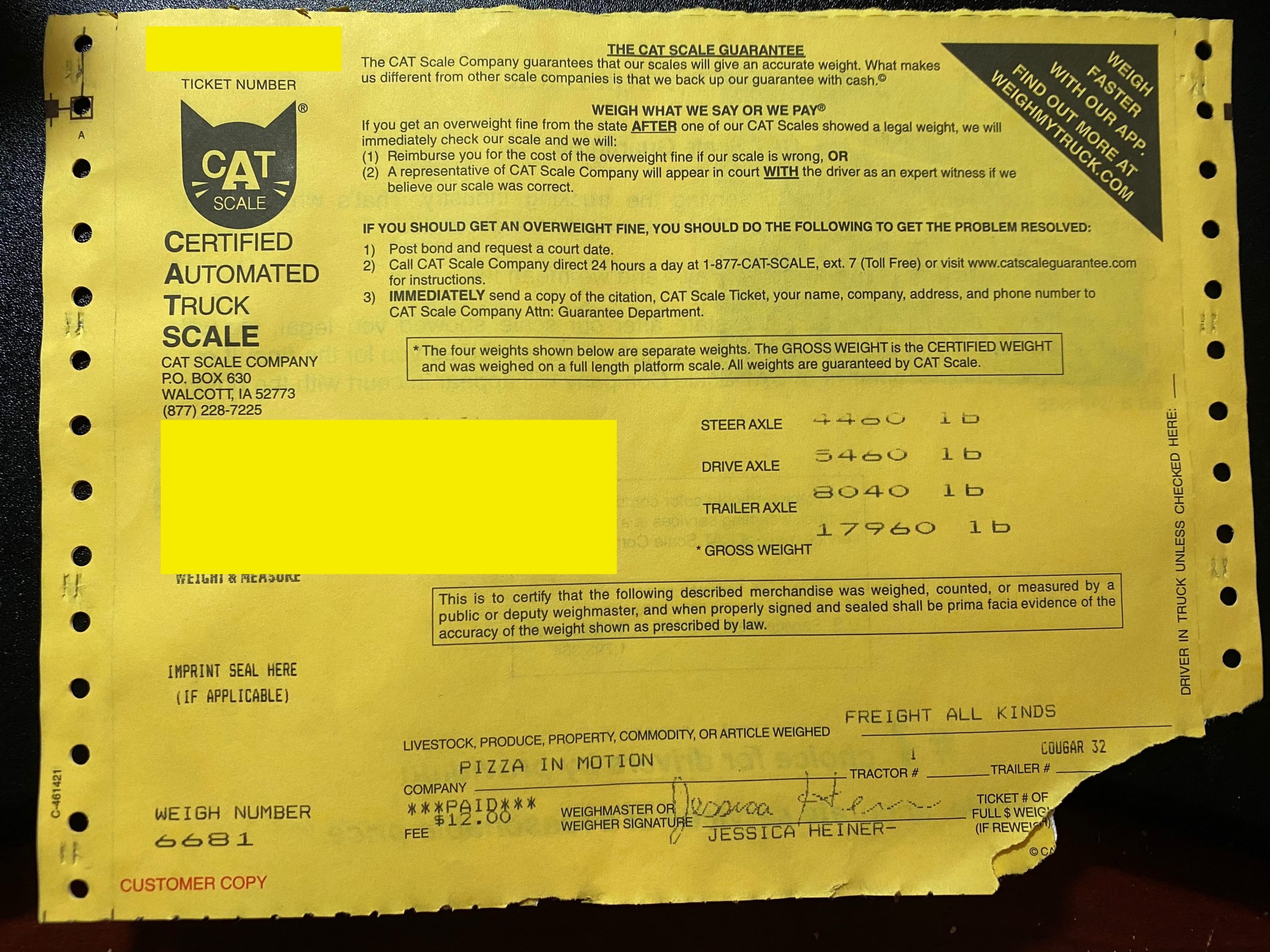
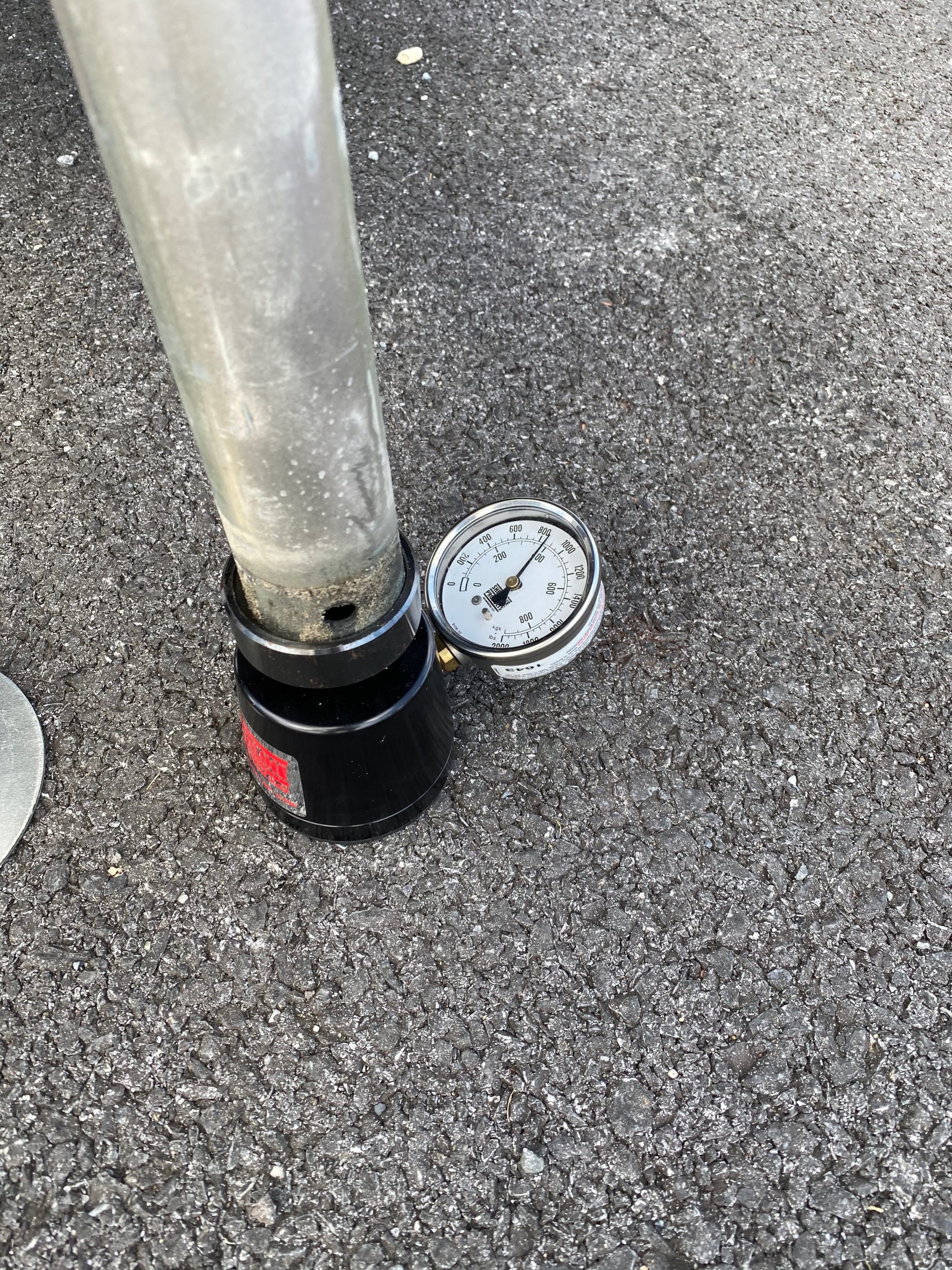
TLDR: you’re rich, entitled, and stupid. Stay the hell at home.
There was some waste. I dont think he was entitled or stupid.ni drive a pretty hefty travel trailer with a 1500 Silverado. I haven’t really had any close calls, but if feel like the tongue weight is a little high. Biggest issue form me is additional wear and tear on the truck. I think a weight distribution hitch would help.
Im trying to ad ATVs to my arsenal this year. We may just have to bring our suv to trailer those bad boys.
Tom, we all have our comfort levels. As someone who’s never towed before, I’m very conservative on what I’m willing to pull. ATVs would be a ton of fun, I bet!
So where is this spreadsheet?
Hah. There’s more than one!
I’m not sure what audience you are shooting for. A trailer to a fifth wheel. 2 trucks. Dont like camping. But the family sure dose??
By the end. I regreted reading any of it
Chris, sorry you didn’t enjoy it. I’ve been laughing at myself for the mistakes I’ve made along the way. I’m never going to be a diehard camper, but I love that my kids are enjoying the experience.
Inteersting article that I won’t read anywhere else! Thanks, Ed.
David, it may be a crazy life, but it’s all ours!
I too enjoyed reading the article, which sent me down an hour long rabbit hole learning about hitch ratings. Enjoy the adventures!
NCSAM, the rabbit hole for hitch weight and payload has no bottom that I’m aware of.
Thanks for sharing this. I find it funny since most folks that get started into RV’ing go through this to find out that 1/2 ton trucks won’t really tow what you want. At least not comfortably. I find it interesting that many (not all) car dealers have no idea what they are talking about when you ask about towing capacity. It’s like they want to make stuff up to get the sale “Sure that 1/2 ton will tow anything but buy the ecoboost just to be sure”. Pair that with some RV dealers that will tell you that a 1/2 ton will work “Oh we have many customers tow that 30 footer with the 1/2 ton they already own”. At the end of the day if you have a trailer larger than about 25′ you’ll want a 3/4 or 1 ton diesel I think. The good news is that trucks aren’t cheap but they do tend to hold value better than cars. Besides rolling up to your local 7-11 in an F-250 gives you some street cred with the yocals. Not to mention that the guys in the neighborhood will “want to be you” if only their wives would let them 🙂
Dan, I learned about 2 weeks too late that a 1/2 ton won’t tow as much as you think. It’s that “comfortably” figure. Amazes me how the 3/4 ton barely knows the trailer is there. That being said, it’s not an enjoyable every day ride. All things I’m learning along the way!
A great tale. I’m looking forward to the next installation.
well worth reading! thanks for sharing. I think camping is going to become even more popular in the coming years…
Simbi, it’ll be interesting to see what demand looks like after the pandemic subsides.
Thoroughly enjoyed reading this. I could actually picture it all. Sure did your research. I’ll have to pass this info along about the weight. We usually have everything in the middle to the front of the trailer when travelling so I don’t think it is known. Hopefully you will be coming our way this year at some point. Beautiful truck and 5th wheel.
Nicole, just waiting for the border to open!!!
Ed, I found your article honest, entertaining, and humorous in a twisted sort of manner.
There are a lot of people out there that make the mistake of not buying enough truck to pull the load. I did research for nearly three years before choosing the combination I determined ‘best’ for my wife and I. Fortunately, I already figured out neither RV salespeople of Tow vehicle sales people understood towing well. In the end, I determined I needed a F-350 Dually to handle the cargo capacity and towing load I intended to pull with a bit of safety margin left over. I am hauling nearly 16,700 lbs behind my truck with a pin weight of nearly 3000 lbs in the truck bed. I ran spreadsheet modeling of different combinations of RVs and various make and models of trucks over and over before determining what I needed to be safe and legal. I enjoyed the process but believe it to be a bit too much for many people to deal with.
In our case, we had previously owned Class A and TT trailers before but with the combination we have now, the only logical choice for us was a large 5th wheel. Many might think it’s even too big for them to handle but it suits our ‘full timers’ lifestyle while traveling the country in retirement.
Thanks for sharing your story.
Michael, sounds like I needed to talk to you before I bought my first truck! I definitely learned a bunch of lessons along the way and had lots of spreadsheets. We’re really happy we ended up with a 5th Wheel. If we stick with camping, I suspect we’ll upgrade to an F-350 and bigger 5th wheel further down the road.
I knew you were way over your head when you mentioned 1 and 1/2 bath on the trailer. Also knew you had a lot to learn when I saw the gross weight of 17k. There isn’t a half ton/trailer set up out there that can be that. The max you can go is about 15k, if you really know what your doing. I’m happy that you were able to get it all figured out. Welcome to the rv lifestyle. Just remember though, a rv set up is nothing more than a hole you just throw money in.
Cliff, you’re 100% right about the hole to throw money in, ROFL. Was just talking about that with a fellow trailer owner today. What kind of RV do you have?
You did the wrong type of research, you should have tried one of the RV association such as Escapes, there are plenty of very experienced 5ers (fifth wheels owners) on the forums that would have given you excellent advice. Don’t ever trust a car (or truck) salesman.
Joyce, we weren’t looking for a 5th wheel to start. I ended up getting some bad advice from a FB group of experienced RV owners. Turns out some of them have no idea what payload capacity is. Definitely learned a lot through the process!